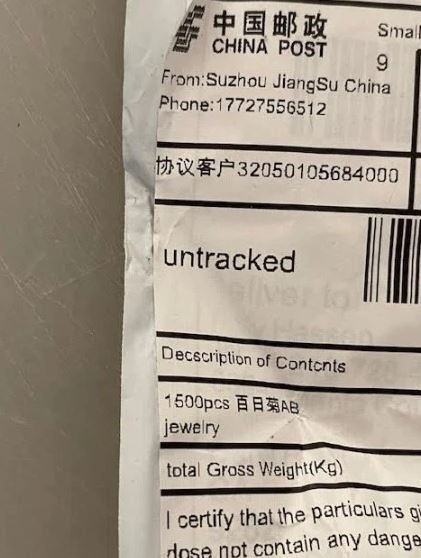Recently a new variant of scam was detected that has alerted authorities from multiple countries, as information security awareness specialists mentioned. This time, the U.S. Department of Agriculture (USDA) has issued an alert asking citizens not to plant any seed packages they could receive in their homes without being ordered online.
Authorities in states such as Virginia and Washington have also issued similar alerts, after detecting multiple cases of people receiving packages they never ordered. These packages, allegedly from China, contain seeds that could germinate in invasive species, very harmful to local crops and livestock.

The packages contain seeds of various sizes and colors, and in some cases the boxes containing them were labeled as jewelry or other small objects. In some cases, a note asked users to keep the bags sealed until they could be sown.
In response to this suspicious activity, the USDA began collecting all seeds received by random citizens in order to determine whether these pose a risk to agriculture on American soil or the environment. The agency is working with the Department of Homeland Security (DHS) and information security awareness experts to find out the exact origin of these seeds.
At the moment, this seems to be one more case of “brushing”, a scam that involves sending unsolicited packages by users. The intention of the companies that run these campaigns is to improve their reputation and post false reviews of their products.
Regarding the provenance of the packages, the USDA only mentioned that the seeds come from China, although no further details were added about the company sending them. This is especially complex at a time, as relations between China and the U.S. are going through their lowest point in decades.
Wang Webin, a spokesman for China’s Ministry of Foreign Affairs, says the local postal service and private shipping companies adhere to a strict restriction on the shipment of seeds or any other agricultural product, so he believes these packages may have been counterfeited.
U.S. authorities are investigating these statements, information security awareness experts mentioned. However, local governments in Washington and Alabama have taken a more forceful stance, calling these shipments “agricultural smuggling”.
For further reports on vulnerabilities, exploits, malware variants and computer security risks, it is recommended to enter the website of the International Institute of Cyber Security (IICS), as well as the official platforms of technology companies.

He is a well-known expert in mobile security and malware analysis. He studied Computer Science at NYU and started working as a cyber security analyst in 2003. He is actively working as an anti-malware expert. He also worked for security companies like Kaspersky Lab. His everyday job includes researching about new malware and cyber security incidents. Also he has deep level of knowledge in mobile security and mobile vulnerabilities.











